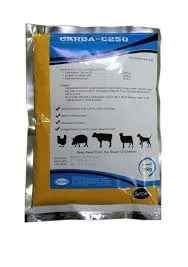- Afrikaans
- Albanian
- Amharic
- Arabic
- Armenian
- Azerbaijani
- Basque
- Belarusian
- Bengali
- Bosnian
- Bulgarian
- Catalan
- Cebuano
- Corsican
- Croatian
- Czech
- Danish
- Dutch
- English
- Esperanto
- Estonian
- Finnish
- French
- Frisian
- Galician
- Georgian
- German
- Greek
- Gujarati
- Haitian Creole
- hausa
- hawaiian
- Hebrew
- Hindi
- Miao
- Hungarian
- Icelandic
- igbo
- Indonesian
- irish
- Italian
- Japanese
- Javanese
- Kannada
- kazakh
- Khmer
- Rwandese
- Korean
- Kurdish
- Kyrgyz
- Lao
- Latin
- Latvian
- Lithuanian
- Luxembourgish
- Macedonian
- Malgashi
- Malay
- Malayalam
- Maltese
- Maori
- Marathi
- Mongolian
- Myanmar
- Nepali
- Norwegian
- Norwegian
- Occitan
- Pashto
- Persian
- Polish
- Portuguese
- Punjabi
- Romanian
- Russian
- Samoan
- Scottish Gaelic
- Serbian
- Sesotho
- Shona
- Sindhi
- Sinhala
- Slovak
- Slovenian
- Somali
- Spanish
- Sundanese
- Swahili
- Swedish
- Tagalog
- Tajik
- Tamil
- Tatar
- Telugu
- Thai
- Turkish
- Turkmen
- Ukrainian
- Urdu
- Uighur
- Uzbek
- Vietnamese
- Welsh
- Bantu
- Yiddish
- Yoruba
- Zulu
Dec . 15, 2024 13:15 Back to list
veterinary deworming tablets
Understanding Veterinary Deworming Tablets A Guide for Pet Owners
Deworming is an essential aspect of pet care that often doesn't receive the attention it deserves. As a responsible pet owner, understanding the importance of deworming and the different types of veterinary deworming tablets available can significantly impact your pet's health and wellbeing. This article aims to provide a comprehensive overview of deworming tablets, including their functions, types, and how to effectively administer them.
Why Deworming is Important
Parasites, particularly worms, can pose serious health risks to pets. Common types of intestinal worms include roundworms, tapeworms, hookworms, and whipworms. These parasites can lead to a range of health issues, including weight loss, malnutrition, anemia, and even severe systemic infections. Young animals are particularly vulnerable, but adult pets can also suffer from different levels of infestation.
Regular deworming is critical for several reasons 1. Health Maintenance Preventive measures help safeguard your pet's overall health. 2. Zoonotic Risks Some worms can be transmitted to humans, especially children, making it crucial to control infestations. 3. Enhanced Quality of Life A worm-free pet is generally more active and vibrant.
Types of Deworming Tablets
Veterinary deworming tablets are typically categorized based on the types of worms they target. Here are some common ones
1. Broad-Spectrum Dewormers These tablets are effective against multiple types of intestinal parasites. They contain a combination of active ingredients that can eliminate several common worms in one dose. Examples include products containing praziquantel, pyrantel pamoate, and fenbendazole.
2. Single-Action Dewormers These target specific types of worms. For instance, praziquantel is effective against tapeworms, while fenbendazole is effective against roundworms.
3. Monthly Preventive Tablets Some deworming tablets are designed to be given monthly as a preventive measure. They reduce the likelihood of infestations and may also protect against heartworm disease.
Administration of Deworming Tablets
veterinary deworming tablets

Administering deworming tablets to pets can be challenging, especially if your pet is fussy. Here are some tips to make the process easier
1. Check the Dosage Always follow your veterinarian's instructions regarding dosage and administration frequency. The correct dose depends on your pet's weight and type of worm.
2. Mix with Food Many pets are reluctant to take medication, so mixing the tablet with their food can help. Choose something tasty to disguise the tablet's flavor.
3. Use Pill Pockets Pill pockets are specially designed treats that have a hole to hide a tablet. They can make the process seamless for both you and your pet.
4. Follow Up with Water Ensure that your pet drinks water after taking the tablet to help with absorption and prevent any potential irritation.
Monitoring Your Pet
After administering deworming tablets, monitor your pet for any side effects. Common side effects include mild gastrointestinal upset such as vomiting or diarrhea. If you notice severe reactions or if your pet’s condition worsens, contact your veterinarian immediately.
Regular Check-ups and Preventive Care
Regular veterinary check-ups play a vital role in your pet's overall health strategy, including deworming. During these visits, your veterinarian can conduct fecal examinations to check for the presence of worms and recommend the appropriate preventive or treatment measures.
Conclusion
In conclusion, veterinary deworming tablets are a critical component of responsible pet care. By understanding their necessity, types, and effective administration, you can help ensure that your beloved pet remains healthy and free from parasitic infections. Consult with your veterinarian to establish a deworming schedule tailored to your pet’s specific needs. Remember, prevention is always better than cure, and a proactive approach can lead to a happier and healthier life for your furry companion.
-
Guide to Oxytetracycline Injection
NewsMar.27,2025
-
Guide to Colistin Sulphate
NewsMar.27,2025
-
Gentamicin Sulfate: Uses, Price, And Key Information
NewsMar.27,2025
-
Enrofloxacin Injection: Uses, Price, And Supplier Information
NewsMar.27,2025
-
Dexamethasone Sodium Phosphate Injection: Uses, Price, And Key Information
NewsMar.27,2025
-
Albendazole Tablet: Uses, Dosage, Cost, And Key Information
NewsMar.27,2025













